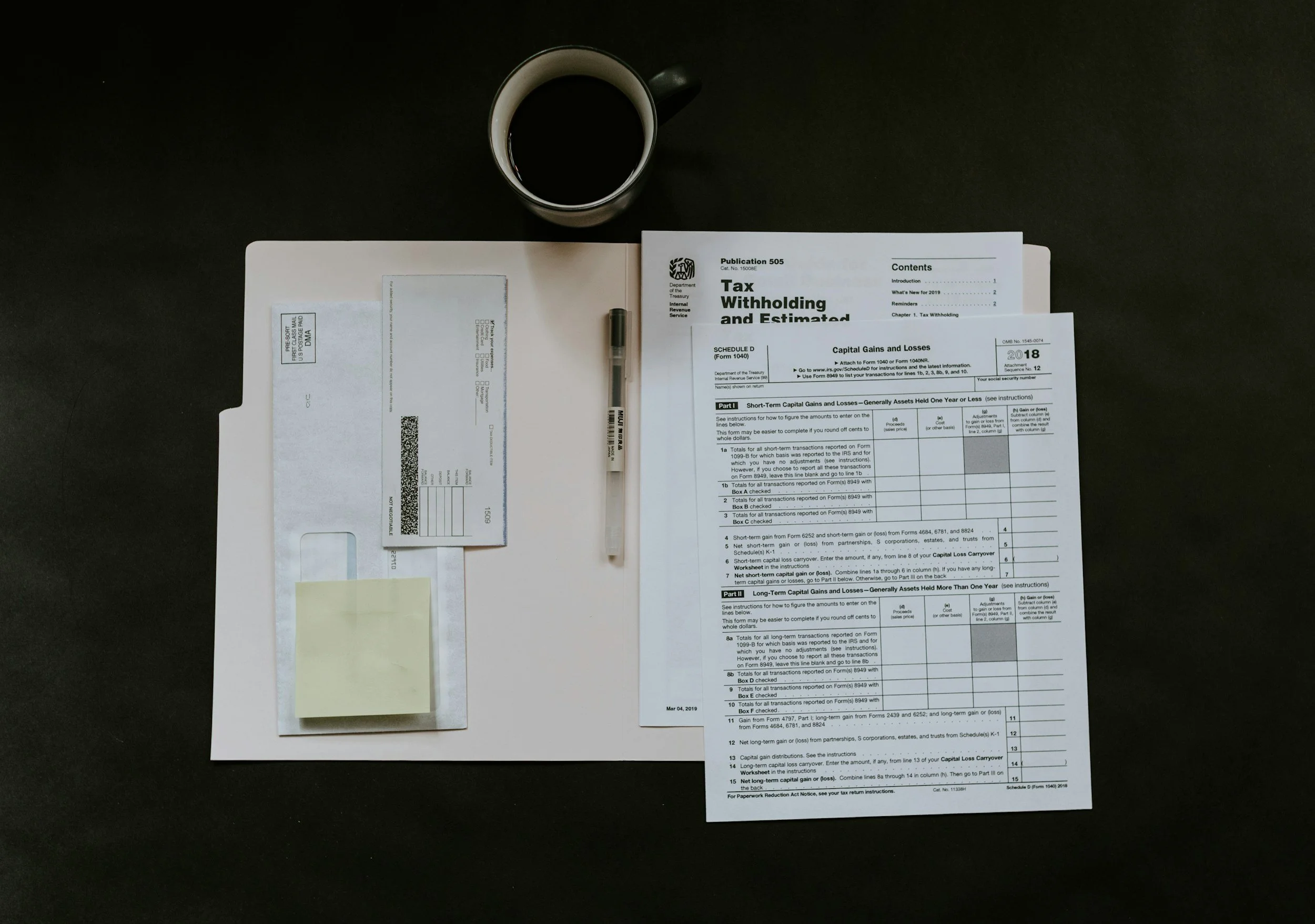Understanding the Deductibility of Property Taxes | Dello Investments
Are property taxes deductible? Navigating the world of property taxes can be complex. Especially when it comes to understanding what is and isn't deductible.
Property taxes fund local services. But are they a burden you have to bear alone? Or can you claim some relief come tax time?
This article aims to shed light on these questions. We'll delve into the nuances of property tax deductions and their implications for homeowners and real estate investors.
We'll explore common queries. Like, can property taxes on rental properties or vacant land be deducted? Or, can you pay your property taxes with a credit card?
By the end of this guide, you'll have a clearer understanding of property tax deductions. And, hopefully, a little less stress about your next tax return.
What Are Property Taxes and Why Are They Important?
Property taxes are levies imposed by local governments. They're based on the assessed value of your real estate property.
These taxes fund essential local services. Think schools, police departments, and public works like roads and parks.
But property taxes aren't just a civic duty. They can also impact your personal finances.
Understanding property taxes is crucial. Especially when it comes to tax planning and maximizing potential deductions.
Are Property Taxes Deductible on Your Primary Residence?
Yes, property taxes on your primary residence are generally deductible. But there are some conditions to keep in mind.
First, you must itemize your deductions on your federal income tax return. This is done on Schedule A of Form 1040.
Second, there's a limit to how much you can deduct. The Tax Cuts and Jobs Act set a cap of $10,000 for state and local taxes. This includes property taxes.
Here's a quick checklist to determine if your property taxes are deductible:
You itemize your deductions on Schedule A.
Your total state and local taxes, including property taxes, don't exceed $10,000.
The taxes are based on your property's assessed value.
The taxes are for a tax year you've paid them in.
Remember, tax laws can be complex. Always consult with a tax professional for personalized advice.
How the Tax Cuts and Jobs Act Affects Property Tax Deductions
The Tax Cuts and Jobs Act (TCJA) brought significant changes to property tax deductions. One of the most notable changes is the cap on state and local tax (SALT) deductions.
Before the TCJA, there was no limit on SALT deductions. Now, the total amount you can deduct for state and local taxes, including property taxes, is capped at $10,000.
This change primarily affects homeowners in high-tax states. If you're in a state with high property taxes, you may not be able to deduct the full amount of your property taxes.
As always, it's best to consult with a tax professional to understand how these changes affect your specific situation.
Deducting Property Taxes for Rental Property
Rental property owners have a different set of rules for property tax deductions. If you own rental property, you can usually deduct your property taxes as a business expense.
This deduction is not subject to the $10,000 cap that applies to personal residences. It's part of your rental property's operating expenses.
However, you must report the rental income on your tax return. The property taxes are deducted from this income, potentially reducing your taxable income.
As with all tax matters, it's wise to consult a tax professional to ensure you're correctly claiming this deduction.
Can Property Taxes on Vacant Land Be Deducted?
The deductibility of property taxes on vacant land can be a gray area. Generally, if you own vacant land as an investment, you can deduct the property taxes.
However, the IRS has specific rules about what constitutes an investment. If you're not generating income from the land, it may not qualify.
As always, it's best to consult with a tax professional. They can provide guidance based on your specific situation and the latest tax laws.
Remember, understanding the nuances of tax deductions can help you make the most of your investments.
Paying Your Property Taxes with a Credit Card: Pros and Cons
Paying property taxes with a credit card is possible. However, it comes with its own set of pros and cons.
Pros:
Convenience: It's easy and quick, especially for online payments.
Rewards: You might earn points, miles, or cash back on your credit card.
Cons:
Fees: Many municipalities charge a convenience fee for credit card payments.
Interest: If you don't pay off your balance in full, you'll accrue interest.
In conclusion, while paying property taxes with a credit card can be convenient, it's important to consider the potential costs. Always weigh the benefits against the drawbacks before making a decision.
Maximizing Deductions: Itemizing vs. Standard Deduction
When it comes to tax deductions, you have two options. You can take the standard deduction or itemize your deductions.
The standard deduction is a fixed amount. It reduces your taxable income, but you can't claim any itemized deductions.
Itemizing deductions allows you to list eligible expenses. This includes property taxes. However, it's only beneficial if your itemized deductions exceed the standard deduction.
In conclusion, whether to itemize deductions or take the standard deduction depends on your personal situation. Always compare the two methods to see which one offers the most tax savings.
Keeping Records and Receipts for Property Tax Payments
Keeping accurate records of your property tax payments is crucial. These records serve as proof of payment and are necessary when claiming deductions.
Ensure to store all receipts and documents related to property tax payments. They may be required by the IRS if your tax return is audited.
Common Mistakes to Avoid When Claiming Property Tax Deductions
Claiming property tax deductions can be complex. It's easy to make mistakes that could cost you in the long run.
One common mistake is not itemizing deductions when it would be beneficial. If your total itemized deductions exceed the standard deduction, itemizing can save you money.
Another mistake is forgetting to deduct property taxes paid at closing. These taxes are often overlooked but can be deducted.
Lastly, many people fail to deduct property taxes on rental properties. These taxes are deductible as a business expense for landlords.
Consulting a Tax Professional: Personalized Advice for Your Situation
Given the complexity of property tax deductions, consulting a tax professional can be beneficial. They can provide personalized advice based on your specific situation.
Remember, tax laws change frequently. A tax professional can help you stay updated and ensure you're maximizing your deductions.
Conclusion: Staying Informed and Compliant
Understanding the deductibility of property taxes is crucial for homeowners and real estate investors. Staying informed about tax laws can help you maximize deductions and remain compliant.
Remember, tax laws can change. Regularly reviewing your tax strategy can ensure you're taking full advantage of available deductions.


